- Learning time
- 40 minutes
- First play time
- 120 minutes
Round House
Designed by: Eros Lin,Zong-Ger
Inspired by the ancient Round House of China, dating back to the Ming Dynasty, the game of Round House challenges you to become the dominant family of the village the enormous building contains.
Each turn, players move one of their two Family Leaders around the house itself, going clockwise along the corridors and stairs, and taking the action of the room they stop in. Broadly speaking, your goal is to gather goods to complete orders for points, and collect amulets (also: points!). But around these day-to-day jobs to be done are a number of attendant operations and distractions, as we’ll see.
Everyone starts the game with their family leaders at the elevated Ancestral Hall, and on your turn you move one of your family leaders around the building, going up to three unoccupied rooms on each turn before taking the action of the room they stop in. What are the actions? Gathering goods is one. Collecting money another. Hiring the wisdom of Experts a third: Expert cards can be activated in a future turn for a one-off bonus or ongoing benefits. But your family leaders aren’t alone in their various tasks and objectives, as there are also many assistants for each player to help them.
You begin with five assistants at your disposal, but another action is getting more of them. Assistants are good for a number of things: simply getting them out on the board means they’ll score a point at the end of the game, but they can also sit in the chairs of the inner circle of the house, next to the inner rooms. If your family member stops at an inner room where you have an assistant adjacent, you can now get additional actions here! Assistants may also (via the Merchant Trader action) go to the four towns outside the round house, where they come extremely helpful during the Worship action. Let’s talk about that.
Whenever one of your leaders completes a circuit of the building, reaching the Ancestral Hall again, they must pause to give worship, either taking a Temple tile for the benefits or playing Round House’s game-within-a-game of worshipping the ancestors. When you take this option, you move all your assistants from one of the towns to a grid called the worship table, and by filling spaces on the table with an assistant for each space, create a ‘path’ of assistants from the top-left to the more rewarding spots: wherever your path stops brings you points, plus other rewards, before the furthest-most assistant flips to the ‘experienced’ side (easily spotted by the presence of a beard!), and any inexperienced assistants return to you.
And so it continues, with players going around and around and each worship the ancestors action pushing a round marker on until, after a set number of rounds, the game end is triggered. Points predominantly come from assistants, amulets and completed contracts.
The guru's verdict
-
Take That!
Take That!
High enough to be a factor in your consideration. There's no direct, in-your-face interaction here, but players will frequently find the room they wanted to visit occupied.
-
Fidget Factor!
Fidget Factor!
Moderate. Although there will often be a call to make a Plan B or Plan C on the hoof, the game does at least limit your options (and resultant agonizing) to two leaders who can each move three spaces.
-
Brain Burn!
Brain Burn!
Very tactical, as around the central nub of contracts to complete and amulets to collect there's quite a lot to consider.
-
Again Again!
Again Again!
There's a randomized set-up and the expert and contract cards are shuffled before each game. But really the re-playability of Round House is down to the player decisions and how they affect each other.

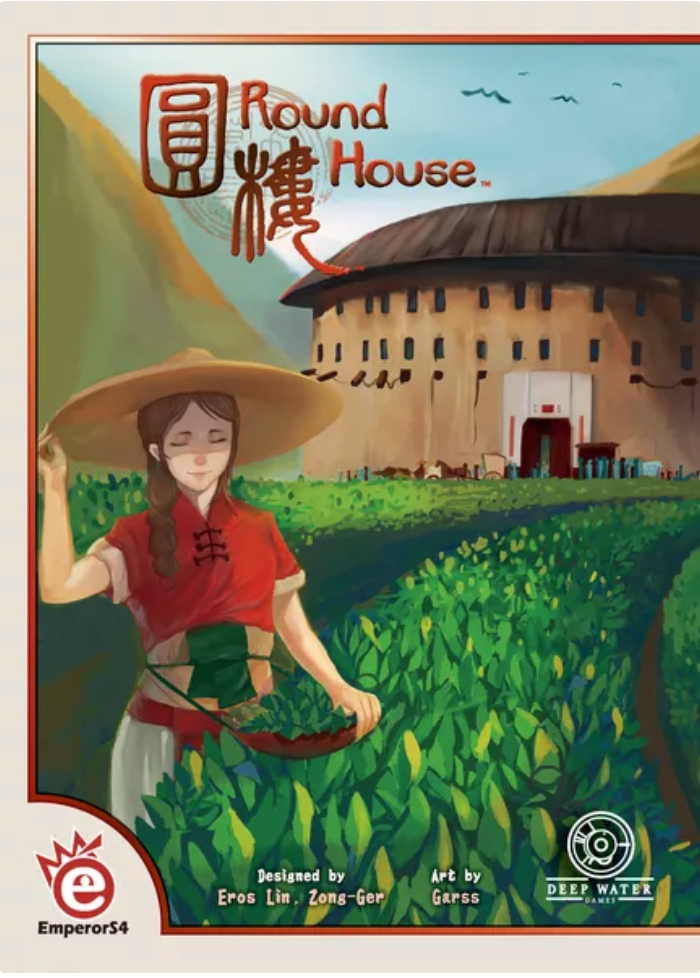

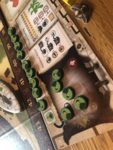
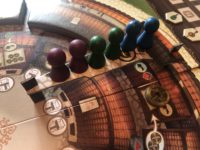
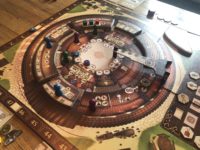
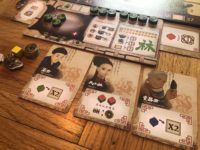



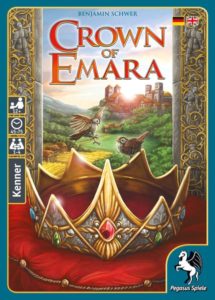

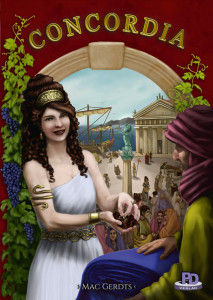


Sam says
It's quite a puzzle, this game, and if the idea of gathering resources to complete contracts has been done a million times in board games, what Round House brings to the table is a scuffle over seating: although nobody can shoot, steal from, sabotage or otherwise interfere with each other directly, the blocking of rooms - inadvertent or otherwise - is what makes Round House shine (if you like that kind of thing) or fail (if you hate it). I rather like tactical thinking over strategic plans and the way the game forces you to think reactively, whilst still managing to make each turn somehow productive, feels fun to me. I mean, it's a very puzzley type of fun, and not a game that invokes a lot of boisterous laughter. But sometimes thinky fun is good, and Round House treads a nice line between frustration and reward.